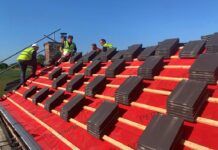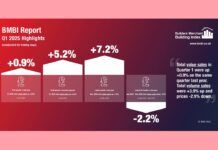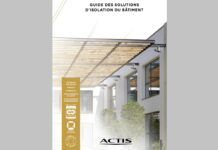
Stephen Ward from RAW Insurance is urging construction professionals to get expert advice when buying professional indemnity insurance in the face of rising premiums and potential claims associated with building cladding.
This comes in the wake of the Grenfell Tower disaster in June 2017, which claimed 72 lives and triggered calls for changes to UK building regulations and the strengthening of fire safety measures.
In 2019, the chairman of the Grenfell Inquiry panel Sir Martin Moore-Bick concluded the ‘principal reason’ why the flames shot up the building at such speed was because of the combustible cladding with polyethylene cores, which acted as a ‘source of fuel’.
Following the fire, buildings across the country with similar materials were examined and those needing materials removed were identified.
The government has banned the use of combustible cladding on new buildings, and has established funds to help pay for the removal and replacement of unsafe cladding.
Safety concerns following the Grenfell Tower fire also had a knock-on effect on the insurance market, with many insurers unwilling to cover cladding that was deemed to be a fire risk.
The aluminium composite material (ACM) cladding used at Grenfell was cited as the primary cause for the rapid progression of the blaze.
Many cladding specialists who designed, supplied and/or installed ACM run a huge risk of having professional indemnity claims brought against them due to the high fire risk this material brings with it.
With properties now in the process of being stripped of this type of cladding and reinstated with fire safe material, the cost is often being covered by the professional indemnity policy of whoever was responsible for the design.
There is more pressure on the insurance market, with premiums increasing and fewer insurers offering cover than ever before.
While businesses with previous claims are being hit the hardest, even companies with no claims can expect a big increase in premium.
Contractors who are involved in cladding projects should take steps to find the best policy for their business.
With fewer insurers in the market, I would recommend asking only one or two brokers to provide quotes because they will be approaching the same insurers.
Too many brokers asking the same limited number of insurers for quotes is counterproductive.
If you have had claims, it could be more difficult to obtain competitive renewal quotes, so make sure your broker understands what measures you have taken in your business to reduce the likelihood of future claims arising.
Demonstrating an improved risk management approach to cladding following a claim will be viewed more favourably by insurers.
It is also worth noting that companies should begin the tender process at least three months in advance of the renewal date.
Choose a broker you can trust, with a good reputation for delivering competitive quotes and who understands your business and the risks you face.
Here at RAW Insurance we have decades of combined experience arranging specialist insurance in the construction sector, so we understand the risks faced by firms in the industry.
We have access to the most competitive policies in the market, and our clients automatically get free access to business support information including health and safety, HR, and regulatory compliance through our MORE from RAW online portal.



